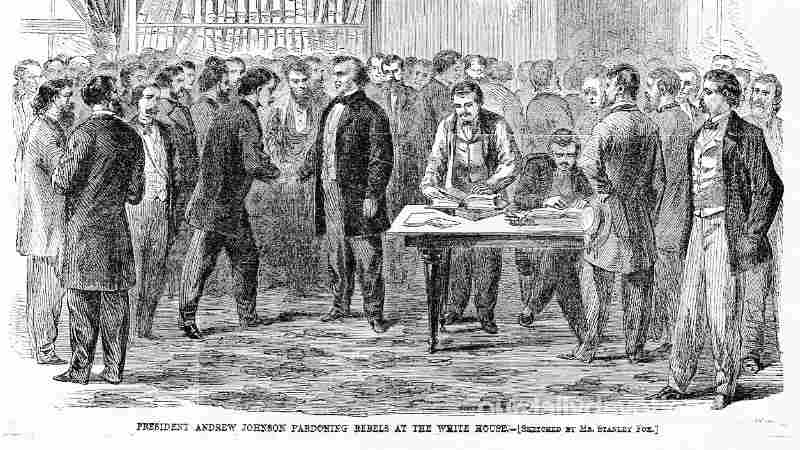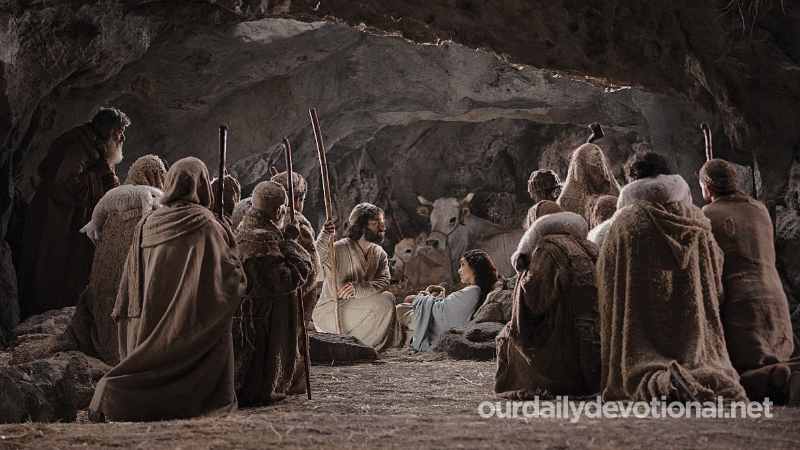Name of several rulers of Palestine and the surrounding regions, or part of them. In the NT three Herods and one Herod Agrippa are mentioned.
(a) HEROD THE GREAT.
Second son of the Idumean Antipas (also called Antipater) and Cypros, a princess of the same race (Ant. 14:1, 3; 7, 3). Herod was, therefore, not a true Jew, neither on his father's nor his mother's side. However, when the Idumeans were defeated by John Hyrcanus in the year 125 BC, circumcision and Judaism were imposed on them, so they were formally assimilated and were officially considered Jews.
Antipater had received, in the year 47 BC, the title of procurator of Judea (Ant. 14:8, 3 and 5). He gave his firstborn Phasael the government of Jerusalem and its surroundings, giving Galilee to Herod, who was then 25 years old (Ant 14:9, 2). After the assassination of Antipater (43 BC), Mark Antony gave the two brothers the title of tetrarchs, with responsibility for conducting Jewish policy (Ant 14:13, 1).
However, Antigonus, the last king of the Hasmonean dynasty, allied with the Parthians, waged war against them. Fasael, fallen into the hands of the Parthians, preferred to commit suicide rather than be killed by them (Ant 14:13, 10). Herod had fled to Rome and, enlisting the help of Antony, he managed to reconquer Jerusalem and Herod became king of Judea in the year 37 BC.
Herod, called the Great, had ten wives, who, with his sons, became involved in intrigues, often fierce, to secure at least a share of power. There were plans, real or invented, against the life of Herod himself, and he, harassed by his persecution manias born of his jealous and distrustful character, had his wife Mariamne, whom he had loved passionately, killed successively, both of them. sons he had had by her, Alexander and Aristobulus, and then another of his sons, Antipater, five days before his own death (Ant. 15:7, 4; 16:11, 7; 17:3, 2; Wars 1:29, 2; 1:33, 7).
Not surprisingly, Augustus Caesar ridiculed this tyrant by saying: "It would be better to be Herod's pig than his son!" This mood perfectly explains why he became beside himself when faced with the question of the wise men: "Where is the king of the Jews who has been born?"
His jealous anger led him to kill all the little ones in Bethlehem and its surroundings (Mt. 2:13, 16). Knowing that his death would be an occasion for great joy, he ordered that the leading Jews be locked up in the hippodrome, and that they be put to death at the precise moment of their own death, in order to ensure at least in appearance "an honorable mourning during their funerals. Fortunately, this monstrous order was not carried out (Ant. 17:6, 5; Wars 1:33, 8).
Herod had a passion for gigantic and ostentatious buildings. Since his cruelties had ruined his popularity, he tried to regain the favor of the Jews by splendidly rebuilding the ancient temple (see TEMPLE). Likewise, he erected a monument over the tombs of ancient kings, and contributed much to beautifying Jerusalem. He did the same with Samaria, where he also rebuilt the temple.
(b) HEROD THE TETRARCH, or Herod Antipas.
Son of Herod the Great and Maltace, Herod's Samaritan wife. Thus, he was half Samaritan and, almost certainly, not a drop of Jewish blood ran through his veins. He was called Herod or Antipas (Ant 17:1, 3; 18:5, 1; 6, 2; Wars 2:9, 1), but, to distinguish him from the other members of the family, he was generally given the name of Herod Antipas.
He was the brother and sister of Archelaus, and younger than him (Ant. 17:6, 1; Wars 1:32, 7; 33, 7). He was raised in Rome at the same time as Archelaus and his half-brother Philip (Ant. 17:1, 3). A will of Herod the Great bequeathed the kingdom to him, but eventually the father changed the arrangements: Archelaus received the throne (Ant. 17:8, 1), and Herod Antipas only received the tetrarchy of Galilee and Perea (Ant. 17:11, 4; Luke 3:1).
He erected a wall around Sepphoris, making it his capital; He also fortified the city of Beth-haran in Perea, building a palace in it, giving it the name Julia Livia in honor of the wife of Augustus (Ant. 18:2, 1; Wars 2:9, 1).
Herod Antipas also rebuilt Tiberias (Ant. 18:2, 3). He married a daughter of Aretas, king of the Nabataean Arabs, whose capital was Petra. Later, residing in Rome, in the house of his half-brother Herod Philip, he gave in to an unspeakable passion towards his sister-in-law Herodias, with whom he united, repudiating his legitimate wife.
Herodias became her evil genius, who made him her toy, reminiscent of Jezebel and Ahab. Aretas, outraged by the insult done to his daughter, declared war on Herod and defeated him (Ant. 18:5, 1).
Herodias was the instigator of the murder of John the Baptist (Mt. 14:1-12; Ant. 18:5, 2). Our Lord, speaking of this rogue tetrarch, called him "this fox" (Lk. 13:31, 32). It is evident that Herod Antipas must have had a certain influence on her followers, because Jesus speaks of "the leaven of Herod" (Mark 8:15). (See HERODIANS.)
When the fame of Jesus began to spread, Herod, with a troubled conscience, feared that John had risen (Matt. 14:1, 2). While Herod was in Jerusalem in the days of the Lord's crucifixion, Pilate sent Jesus to him. Herod thought he would see some miracle performed, and he was frustrated.
That same day, Herod and Pilate were reconciled, since they had been at enmity (Luke 23:7-12, 15; Acts 4:27). The proud Herodias became deeply envious of her own brother Agrippa, who had obtained the royal crown of Judea, while her husband was no more than a tetrarch.
She then persuaded Herod to go to Rome to claim the crown. Then Agrippa wrote to Emperor Caligula, accusing Herod of having entered into a secret alliance with the Parthians. Herod was then exiled to Lion, in Gaul, in the year 39 AD. (Ant. 18:7). According to Wars 2:9, 6, he finally died in Spain.
(c) King AGRIPP I.
The historian Josephus calls him simply Agrippa, but this name is generally given to distinguish him from Herod Agrippa II, before whom Paul appeared. Agrippa was the son of Aristobulus, son of Herod and Mariamne, granddaughter of Hyrcanus. He had been raised in Rome with Drusus, son of Tiberius, and with Claudius (Ant. 18:6, 1 and 4).
The death of Drusus and the lack of money made him return to Judea (Ant. 18: 6, 2). In the year 37 AD. he returned to Rome in order to accuse Herod the tetrarch (Ant. 18:5, 3). After having presented the accusation, Agrippa remained in the capital of the empire, hanging out with people who could later be of some use to him.
He won the favors of certain high personalities, among them those of Gaius, son of Germanicus, the future Caligula (Ant. 18: 6, 4; Wars 2: 9, 5). Tiberius had Agrippa put in chains, because he had dared to take Gaius's side. Six months later, Tiberius died and Gaius, crowned emperor, granted Agrippa the title of king with two tetrarchies: the one that had been ruled by his uncle Philip and that of Lysanias (Ant. 18: 6, 10). .
In A.D. 39, the emperor, having banished Herod Antipas, added his tetrarchy of Galilee to Agrippa's kingdom (Ant. 18:7, 2). He resided in Rome for a time and managed to dissuade the emperor from erecting a statue in the temple of Jerusalem (Ant. 18: 8, 7-8).
After the assassination of Caligula, Agrippa, then in Rome, mediated between the Senate and the new emperor Claudius, whom he managed to convince to assume leadership of the empire. As a reward for his services, Agrippa received Judea and Samaria; In this way, his dominions reached the magnitude of those of Herod the Great (Ant. 19: 3-5; Wars 1:11, 1-5).
He began the construction of a wall around the suburb outside the walls north of Jerusalem, to unite it with the rest of the walled city, but he was given orders to discontinue this undertaking (Ant. 19:7, 2). Agrippa had John's brother James beheaded (Acts 12:1, 2) and Peter imprisoned (Acts 12:3, 19).
Having accepted, in Caesarea, honors due only to God, he was attacked by a disease, from which he died, full of worms (Acts 12: 20-23; Ant. 19: 8, 2). Died in the year 44 AD, at the age of 54, he left four children. The Scriptures mention three of them: Agrippa, Bernice, and Drusilla (Wars 2:11, 6; Acts 25:13; 24:24). (See AGRIPPA).
(d) HEROD AGRIPPA II.
He was the son of Herod Agrippa I, great-grandson of Herod the Great, and brother of two disreputable women, Berenice and Drusilla (Wars 2:11, 6). At the death of his father, in the year 44 AD, he was 17 years old, and living in Rome, having been raised at the imperial court (Ant. 19:9).
Because of his youth, Claudius was dissuaded from placing his father on the throne. The government of Judea was entrusted to a procurator, and Agrippa remained in Rome. He successfully supported the Jewish ambassadors who sought permission from the emperor to control the office of high priest (Ant. 20:1, 1).
When Herod, king of Chalcis and uncle of Agrippa, died around the year 48 AD, the emperor Claudius gave Agrippa this small kingdom, located on the western flank of Anti-Lebanon (Ant. 20:5, 2; Wars 2:12, 1) . This is how Agrippa received the title of king. Shortly thereafter, he was granted the tetrarchy of Philip, which comprised Batanea, Trachonitis, Gaulanitis, the tetrarchy of Lysanias, and the province of Abilene (Ant 20:7,1; Wars 2:12, 8).
The incestuous relations with his sister, Berenice, then began to be a cause of scandal (Ant. 20: 7, 3). After Festus succeeded Felix as procurator of Judea, Agrippa, accompanied by Berenice, went to Caesarea to visit him. Paul was then imprisoned.
Festus informed the king of the case opened against Paul and, the next day, the apostle was allowed to defend him before the procurator, the king, and Berenice. Paul was recognized innocent, but he had already appealed to Caesar (Acts 25:13-26:32).
At the beginning of the riots that led to war and the destruction of Jerusalem, Agrippa strove to dissuade the Jews from offering armed resistance to the procurator Florus and the Romans (Wars 2:16, 2-5; 17:4; 19: 3).
When war broke out, Agrippa fought alongside Vespasian and was wounded at the siege of Gamala (Wars 3:9, 7, and 8; 10:10; 4:1, 3). After the fall of Jerusalem, he retired to Rome together with Berenice, where he was given the position of praetor. He died in the year 100 AD.
Meaning of HEROD
Name of several rulers of Palestine and the surrounding regions, or part of them. In the NT three Herods and one Herod Agrippa are mentioned.







